When you’re shopping for a mattress, you’ll notice a list of certifications, like Certipur-US, GOTS, and GOLS. Many shoppers often ignore these, but they’re actually essential verifications that tell you a lot about a mattress and the company that made it.
Many of our top picks in this year’s best mattress guide for all sleepers and budgets feature a long list of these certifications, and that’s a good thing. It indicates that a mattress has gone through rigorous testing to ensure its safe.
However, it’s not all about safety. These certifications also mean companies are considering their environmental impact. If you're in the process of shopping for a new bed in the Black Friday mattress deals, we'll break down exactly what the most common mattress certifications mean, as well as detailing how to spot when a company is greenwashing.
What are mattress certifications?
Mattress certifications are certificates issued by independent bodies when a mattress meets certain safety, ethical, and quality standards.
This ensures that all mattress brands adhere to regulations put in place to ensure the production of mattresses is not excessively harmful to the environment or communities. It also ensures that the mattresses will not harm those who buy them and sleep on them.
Why do mattress certifications matter?
Without mattress certifications, people may unknowingly bring harmful chemicals and materials into their home.
Some foams used in mattresses can be made with dangerous chemicals that can off gas, releasing harmful volatile organic compounds (VOCs) into the air. When breathed in, this can cause short term and long term health issues. Ensuring the materials used are certified by an independent organization can eliminate this risk.
Alongside this, mattress certifications are essential in reducing harm to the environment. By setting ethical and environmental standards of production, the amount of harmful gases and waste can be reduced, making it a more sustainable practice. It also ensures that those along the production line, like farmers, are treated fairly.
Common mattress certifications and what they mean
There are many mattress certifications used for different types of mattresses, but we’re going to focus on the most common verifications you’ll see when shopping for your bed and exploring exactly what they mean.
Certipur-US for safe polyurethane
The Certipur-US certification is designed to ensure that the foams used in mattresses are safe for both the environment and those sleeping on them. If you see a mattress with this certification, it means that it is:
- Made without formaldehyde
- Made without ozone depleters
- Made without phthalates regulated by the U.S. Consumer Product Safety Commission
- Made without mercury, lead and other heavy metals
- Has low VOC emissions for indoor air quality (less than 0.5 parts per million)
- Has been screened for relevant chemicals, including flame retardants, that are classified as carcinogens, mutagens or reproductive toxins
Most foam mattresses will have this certification, and certainly the majority of mattresses we report on that use foam will be Certipur-US certified, including many of our top picks in our best cheap mattresses guide.
This includes the Siena Memory Foam mattress, a budget mattress starting from $199, that uses Certipur-US certified foam. This is a US certification, although it’s becoming a global standard, so if your mattress doesn’t include this, it may be based on where they were manufactured.
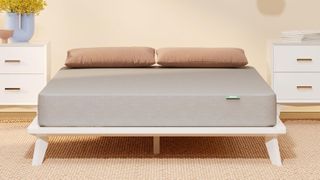
Global Organic Textile Standard (GOTS) for organic fibers
The GOTS certification ensures that materials are truly organic. This means that they won’t contain toxic chemicals or man-made products, like pesticides or fertilizers, and they will have been sustainably harvested and sourced. This is important for promoting biodiversity, improving human health, and ensuring practices are sustainable.
To achieve the ‘made with organic’ label, a mattress must contain a minimum of 70% certified organic fibers, while the 'organic' label requires a minimum of 95% certified organic fibres.The rest of the fibers used must meet the GOTS criteria.
The best organic mattresses will carry these certifications for the materials used. For example, the Awara Natural Hybrid mattress uses GOTS certified New Zealand wool in its luxury top cover and the Amerisleep Organica mattress uses GOTS certified cotton.
Global Organic Latex Standard (GOLS) for natural rubber latex

The GOLS certification ensures latex that’s commonly used in mattresses is sourced and produced organically and naturally. Synthetic latex is often used to mimic the benefits of natural latex, like the bouncy, breathable feel. However, synthetic latex is made using petroleum, which means the production process can be harmful to the environment and can also lead to bad odor emissions from VOCs, often known as mattress off gassing.
Ensuring your mattress is made from organic, natural latex means you can rest assured knowing that the production was a sustainable and traceable process. This means farmers will have been treated fairly, and it will have passed social and environmental regulations.
Many mattress brands we recommend use this certification. Like the highly rated Saatva Zenhaven Natural Latex mattress that uses both GOLS certified latex foam and GOTS certified wool, and makes it to spot 5 in our best Saatva mattress guide.
GREENGUARD for indoor air pollution
The GREENGUARD certification ensures that materials used in mattresses don’t increase indoor air pollution to dangerous levels. Again, this refers to VOCs. While it’s normal for VOCs to be circulating in the air, it’s important the level of these volatile organic compounds are controlled. This is because long-term exposure to high levels can lead to chronic illnesses.
Even the best memory foam mattresses will release VOCs into your home when unwrapped, but as long as they’re GREENGUARD certified, they will be under the emissions limit criteria, ensuring they’re harmless.
One of our top picks in this year’s best hybrid mattress guide, the Bear Elite Hybrid mattress is GREENGUARD Gold certified, meaning it has an even lower VOC emissions level than the standard GREENGUARD certification requirement, so you can expect minimal off gassing.
OEKO-TEX for non-toxic materials
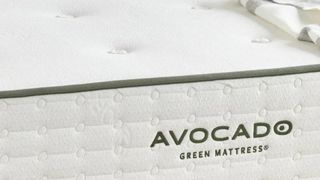
There are three OEKO-TEX certifications:
- OEKO-TEX Made in Green: This means certain textiles and leathers have been tested for harmful substances and been produced under socially and environmentally responsible conditions.
- OEKO-TEX Standard 100: All types of textiles have been tested for harmful substances.
- OEKO-TEX Organic Cotton: This means cotton has been tested for genetically modified organisms (GMOs) and harmful substances.
All three are designed to ensure mattress production is environmentally responsible and safe for your and your household’s health. You can rest assured knowing that the environment and those along the production journey (like farmers) have not been harmed to make the materials used in your mattress.
The Avocado Green mattress, which takes first place in our organic mattress buying guide, is the first innerspring mattress in America to meet the OEKO-TEX Standard 100 certification, meaning every single material used in the mattress has been lab-tested for harmful levels of toxic substances.
Eco-INSTITUT for low emissions
The Eco-INSTITUT certification means that products have been tested and approved as both low-pollutant and low-emissions.
In order to obtain this certification, mattress brands must provide a full list of all materials used in a product before the organization samples some of the product to test for emissions, odors, and harmful content. If it passes, it will be Eco-INSTITUT certified, but it will have to undergo the process again every two years to keep the verification.
As you can imagine, this rigorous testing means only the very best organic and natural mattresses can achieve this status. The PlushBed Botanical Bliss mattress is Eco-INTITUT certified, and it’s no surprise it makes our best organic mattress guide.
Fair Trade
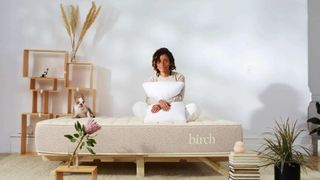
The Fair Trade certification ensures mattress production is socially responsible. This includes ensuring producers and farmers receive prices that cover the sustainable production of materials used.
The conditions of production are also taken into consideration, ensuring they are ethically and socially fair, while still enabling social, economic, and environmental development.
Mattresses with this certification mean the manufacturers and producers have been observed and audited by Fair Trade and their practices have been approved. One such example is the mattress brand Birch Living which received the Fair Trade certificate for the organic cotton used in their mattresses, like the Birch Natural mattress.
Made Safe
The Made Safe certification ensures products are not made from its list of banned and restricted substances. These substances are toxic for water supplies, soil, and the air, and include carcinogens, heavy metals, and parabens. You can see the full list of over 6,500 toxic substances here.
Mattresses with the Made Safe certification have been screened for these substances and all materials used have been cleared, making them safe to bring into homes and safe for the environment.
A notable example is the mattress brand Naturepedic which is certified by Made Safe. In our Naturepedic Concerto Pillow Top review, our tester awarded the mattress 4 stars, praising its natural materials and design.
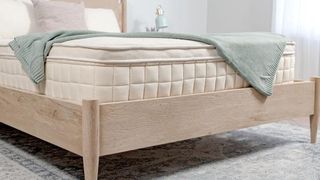
What is greenwashing and how can you spot it?
With more and more people choosing to shop sustainably, companies are trying to market towards eco-conscious shoppers. Sometimes, this means changing for the better and ensuring its production and practices are ethically and environmentally fair and sustainable. That’s when you’ll see the certifications we mentioned.
However, other brands are using greenwashing to trick consumers into thinking that a product is more eco-friendly than it really is. You can spot this when companies use descriptions like ‘green’, ‘eco-friendly’, and ‘natural’ without any industry verifications and certifications to back up the claims.
Ultimately, if a mattress brand is certified by independent organizations like those above, you can be certain its being held to a high standard of sustainability. However, if a company isn’t publicizing any certifications, and you can’t find it on a certification’s website, it’s likely a case of greenwashing.
Further mattress certifications
While we’ve covered some of the most common mattress certifications, here are some smaller independent certifications that are important to consider.
American Chiropractic Association (ACA) for back support
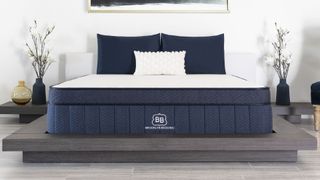
The ACA is a professional organization of chiropractors that advocate for policies and standard practices designed to support and nurture health and wellness.
An ACA endorsement is awarded to high quality products that meet the high standards and criteria of the organization. This is only done after thorough review, analysis, testing and evaluation by a review board of doctors and final approval from ACA’s Board of Governors.
These standards include craftsmanship, comfort, support, and durability. Many brands in this year’s best mattress for back pain guide have been given this endorsement, like the Brooklyn Bedding Aurora Luxe mattress which offers ergonomic support.
Carbon Neutral
Carbon Neutral is a non-profit organization designed to encourage companies to ensure the production of their materials and products is, as you might have guessed, carbon neutral.
This means that at the end of the manufacturing process, there is no net release of carbon dioxide into the environment. This helps reduce pollution and global warming.
To achieve this certification, brands must measure their carbon emissions throughout its whole process up until delivery, and put a partnership in place with a business that can help offset its carbon footprint.
1% for the Planet
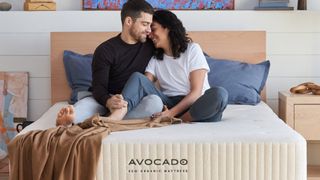
A 1% for the Planet certification means that a business is committed to donating 1% of its annual sales to environmental organizations. To be certified, brands must commit to this donation, donate directly to one or more approved organizations, and submit the receipts and revenue documentation.
This is a fantastic initiative to ensure we’re investing in our future, and the companies that commit to this are sending a clear message to its consumers that they prioritize sustainability and the environment.
Avocado, a mattress brand we’ve mentioned before, is a certified 1% for the Planet brand, and has already donated to over 45 different environmental organizations like Protect Our Winters, Women’s Earth Alliance, Fruit Tree Planting Foundation, and Re:Wild.
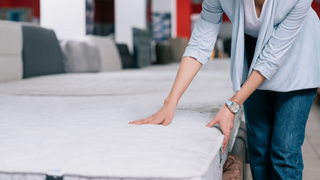



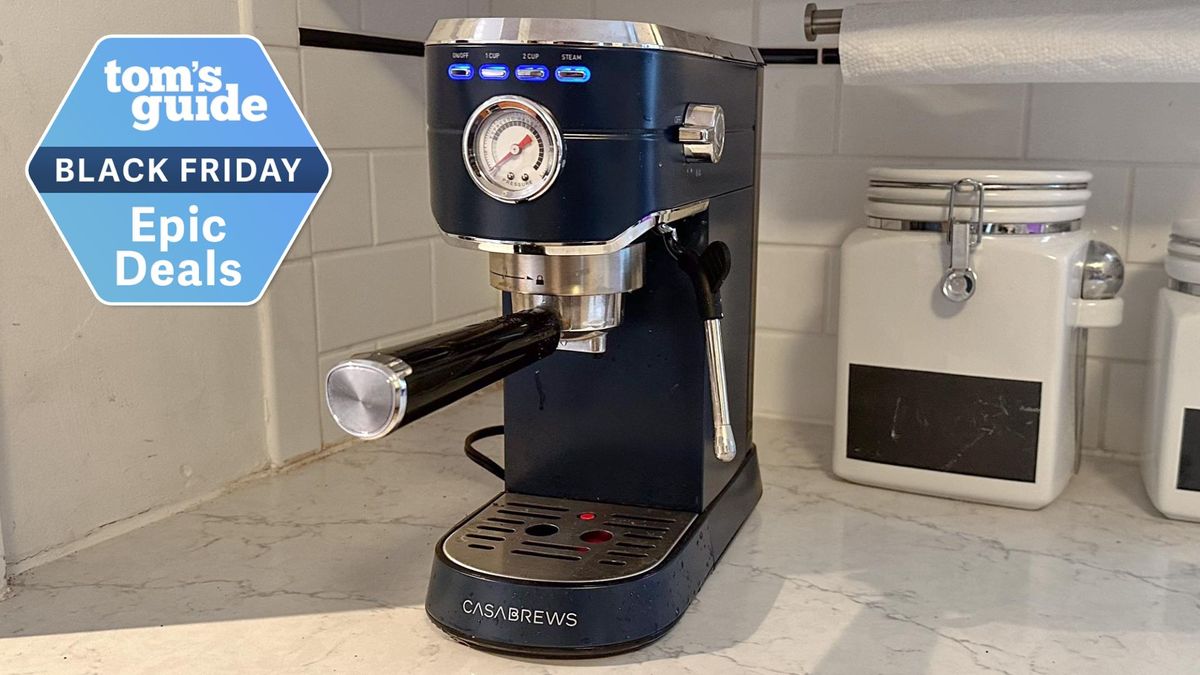















 English (US) ·
English (US) ·